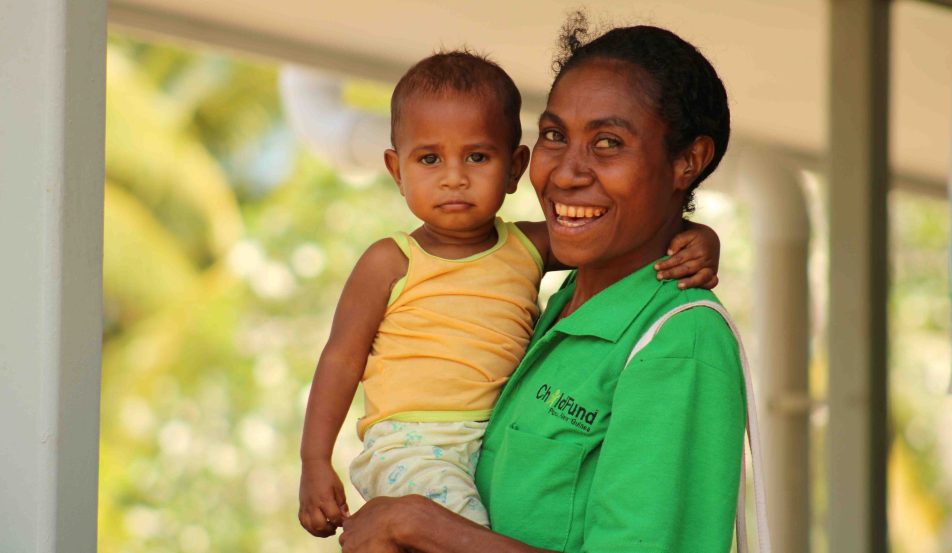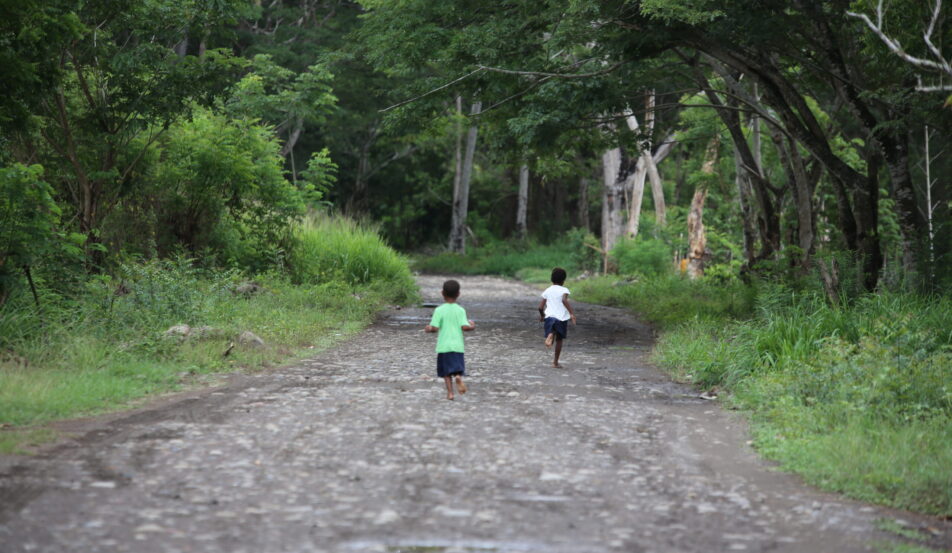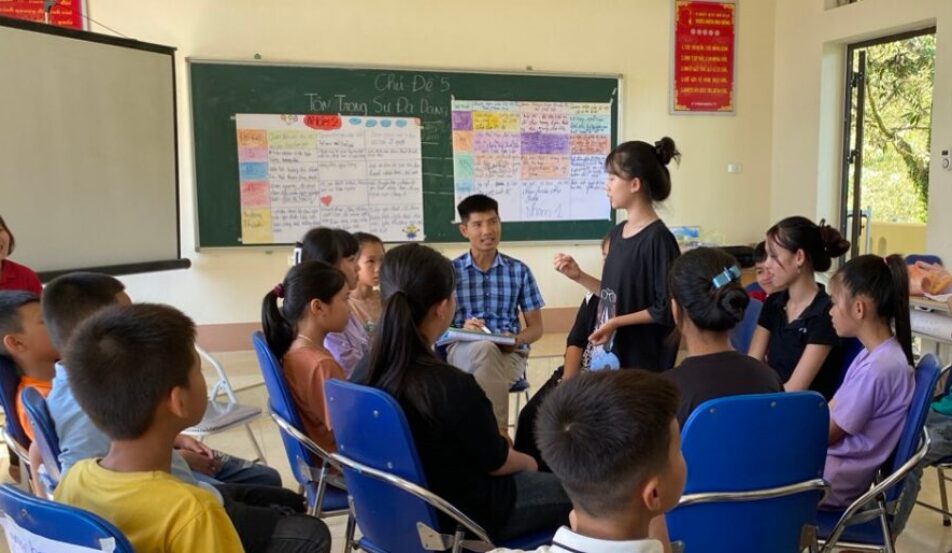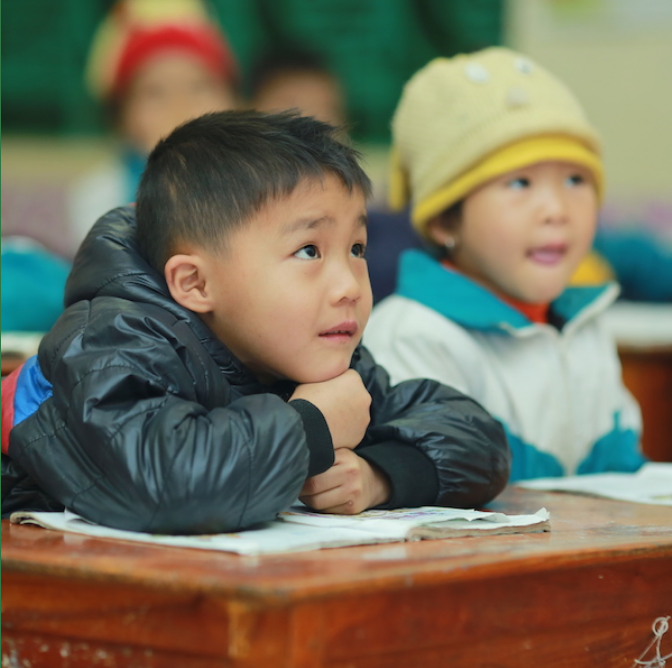A frightening account of giving birth in a remote village
It was around midnight when Judite began feeling a pain that she had never felt before. The mother of six was heavily pregnant with her youngest child Marcelo, but this feeling was different to any labour pains she had experienced previously.
This is an account of the frightening reality of giving birth in a remote village in Timor-Leste.
Giving birth in the back of an ambulance
“It was the worst pain,” Judite says. “I was frightened.”
She asked for Odete, the Community Health Volunteer trained by ChildFund in her village, who immediately called an ambulance to take her to the nearest health centre, an hour and half away by car through windy, dirt roads.
Judite (pictured above with Marcelo and daughter Zebifania, age 3) gave birth to Marcelo in the ambulance with the help of a midwife but she had lost a lot of blood.
It was a terrifying experience but at least she had been in the hands of a professional.
A lack of doctors and nurses means medical emergencies could be fatal
In Judite’s village, in the remote mountainous areas of Lautem municipality in Timor-Leste, a lack of health facilities, doctors, nurses and midwives means when medical emergencies occur they can be fatal. Women in Judite’s village traditionally give birth in their homes with the assistance of a “daya”, a birth attendant who is experienced in delivering babies but who does not have a medical background or formal training in midwifery.
Giving birth at home without a trained healthcare professional is unsafe
Judite gave birth to five of her children at home with the help of a daya. But with Marcelo, she wanted a doctor or midwife present. She had learnt from her previous experiences and from Odete that giving birth at home without a trained medical professional was unsafe and could put her life and her baby’s life at risk.
Community volunteers are helping to save the lives of mothers and their babies
Apolonia, a midwife at Lautem health centre, where Judite was cared for after giving birth to Marcelo, says Community Health Volunteers like Odete are helping to save the lives of mothers and their babies. They are critical in ensuring information about maternal and child health is passed on to families in remote and rural communities that have no or limited healthcare.
Community Health Volunteers run workshops and training sessions for families to teach them about safe ways to give birth, and how to prevent, identify and treat child malnutrition and common childhood illnesses. This project is supported by the Australian Government through the Australian NGO Cooperation Program (ANCP).
Community volunteers can identify malnutrition before it’s too late
Today, Marcelo is 19-months-old. Judite is hopeful about her son’s future, and she is continuing to learn more about child health from Odete and the workshops supported by ChildFund in her community.
Odete has been monitoring Marcelo’s growth since he was born, and recently discovered that he was at risk of becoming malnourished. She encouraged Judite to attend the nutrition workshops in their village.
“I am happy to join this activity because I have learnt how to prepare nutritious food for my children,” Judite says.
Donate now to help improve maternal and child health in Timor-Leste
It only takes one person to change a life.
Since ChildFund’s maternal and child health program began in Timor-Leste, we’ve helped hundreds of women by ensuring they attend regular health check-ups and give birth in safe conditions.
We’ve made progress, but there are many more villages where women and their children are in urgent need of support.
Your donation can mean the difference between bringing new life into the world, and a life ending too soon. You have the power to change the life of a mother and her child. Donate now.
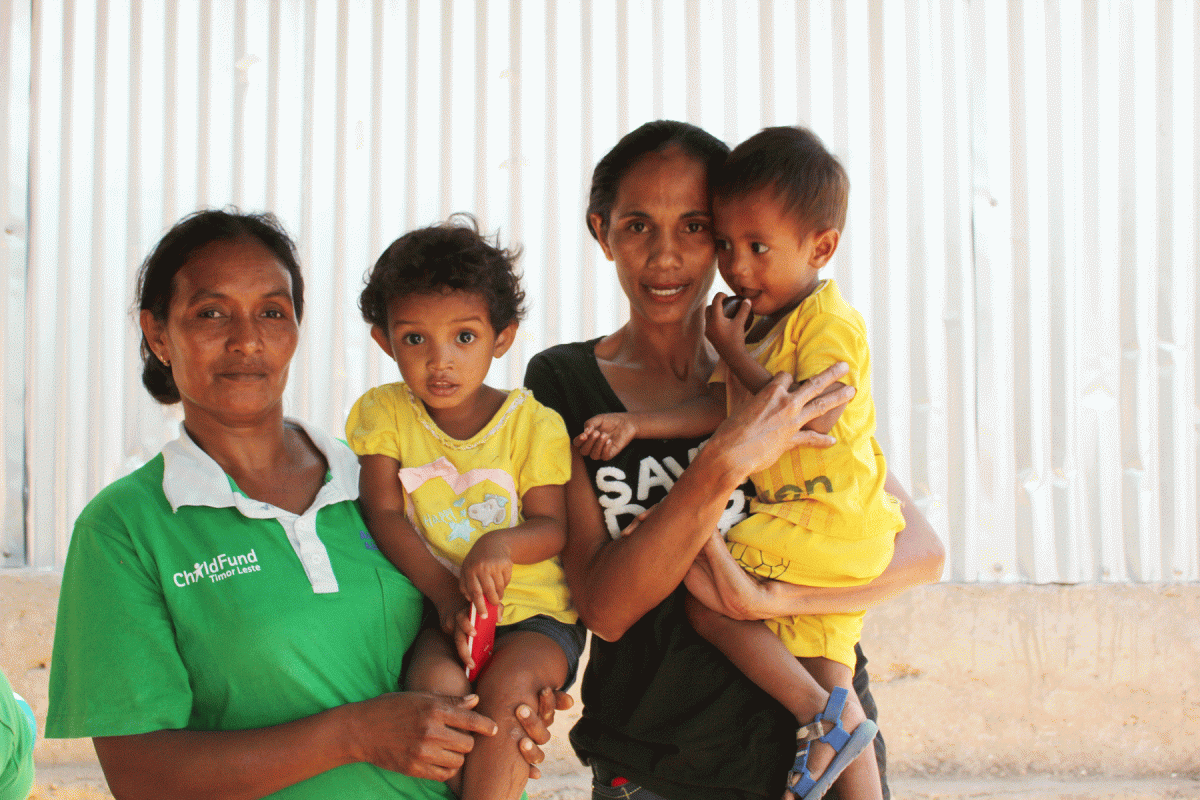
Community Health Volunteer Odete with her daughter Henytha, age 2, and Judite with her son Marcelo, age 19 months.































